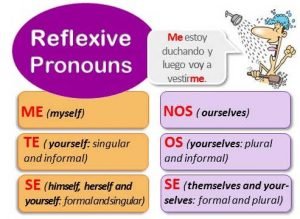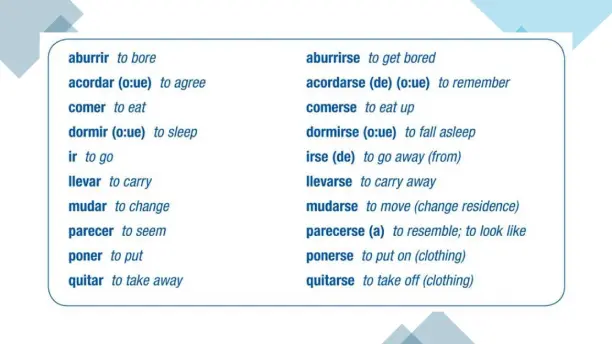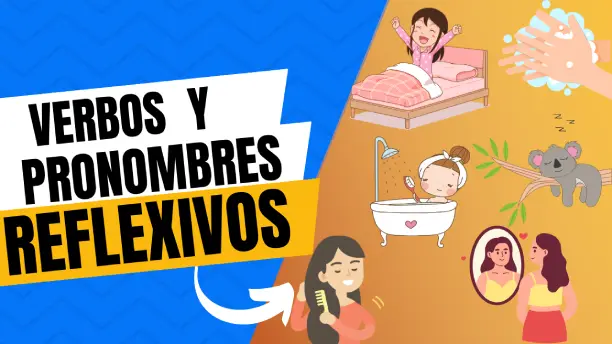Spanish reflexive verbs are those where the subject and the object are the same, and where the action “reflects back” on the subject. They must be used with a reflexive pronoun, such as myself, yourself, and himself, in English. The video below will help you better understand how reflexive verbs work in Spanish, with many examples that will make your work easier.
How reflexive verbs work in Spanish
1. In Spanish, reflexive verbs are much more common than in English, and many are used in everyday language. The infinitive form of a reflexive verb has SE attached to the end of it, for example, secarse (meaning to dry oneself). This is precisely how you will see them in the dictionary. Here, you have some of the most commonly used.
Acostarse (to go to bed) Levantarse (to get up)
Llamarse (to be called) Dormirse (to go to sleep)
Ducharse (to have a shower) Enfadarse (to get angry)
Acordarse (to remember) Vestirse (to get dressed)
Divertise (to enjoy) Casarse (to get married)
2. Reflexive pronouns are usually written before the verb, and they change depending on the subject:

Mi jefe se enfada mucho (My boss often gets angry).
Me levanto a las siete (I get up at seven o’clock).
¿A qué hora os acostáis? (What time do you go to bed?).
¿Cómo te llamas? (What’s your name?)
Nos vestimos (We are getting dressed).
3. Very often, Spanish verbs can be used both as reflexive verbs and as ordinary verbs (without the reflexive pronouns). When they are used as ordinary verbs, the person or thing doing the action is not the same as the person or thing receiving the action, so that the meaning is different.
Me lavo (I wash myself).
Lavo la ropa a mano (I wash the clothes by hand).
Me llamo Santiago (I am called Santiago).
¡Llama a la policía! (Call the police).
Me acuesto a las 11 (I go to bed at 11 o’clock).
Acuesta al niño (He puts the child in the bed).
Only after an infinitive, a gerund, or an imperative affirmative pronoun is written behind and in the same word.
Vamos a levantarnos (We are going to get up).
Estamos levantándonos (We are getting up).
Levántate (Get up).
Spanish reflexive verbs
Some verbs change their meaning when used together with a reflexive pronoun. Here you have a list of some of these verbs, so that you can compare them.

Ready to practice what you have learned?
You can practice what you have learned with the activities below.
